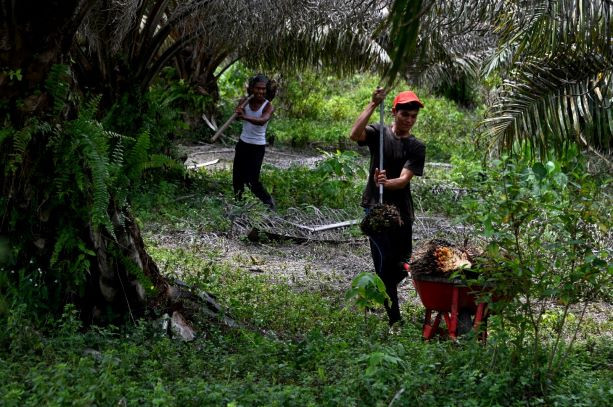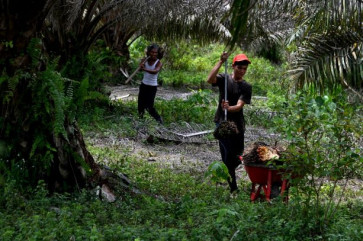Popular Reads
Top Results
Can't find what you're looking for?
View all search resultsPopular Reads
Top Results
Can't find what you're looking for?
View all search resultsVarying sustainability standards polarize vegetable oil market
Harmonization of due diligence laws for deforestation-free palm oil is needed to establish a common set of ESG standards for vegetable oils that can benefit all.
Change text size
Gift Premium Articles
to Anyone
W
e are now seeing a gradual shift in the global perception of palm oil, which had been blamed as the main driver of deforestation in the past, toward the more balanced view that other vegetable oils and commodities are equally responsible for contributing to climate change and deforestation.
Subsequently, the unrelenting push for imposing exclusive and discriminative standards of sustainability on palm oil while overlooking other vegetable oils has, in some way, substantiated the suspicions over nontariff barriers imposed by vegetable oil producers in developed countries. For example, the markets in the European Union and the United States have unilaterally imposed environmental and social standards on palm oil that are more rigorous than those imposed on other vegetable oils.
But growing awareness of sustainability issues and the need for common environmental, social and governance (ESG) standards, augmented by mounting demand for inclusive and fair trade of commodities, including vegetable oils, have pushed stakeholders to shift the focus of sustainability and market requirements from palm oil to all vegetable oils.
There has been increasing public opinion pressure that sustainability standards for palm oil production and use must also be imposed on all vegetable oils, from soybean, sunflower and canola oil to corn oil.
The Indonesian Palm Oil Conference (IPOC) in Bali on Nov. 2-4 is themed “New Landscape in World Vegetable Oil: Opportunities and Challenges for Palm Oil Industries”, highlighting the role of palm oil in meeting the global demand for vegetable oils.
The conference will also look at the growing importance of palm oil within the context of the global production and consumption of vegetable oils, as well as market and consumer behavior that affects the perception and consumption of vegetable oils.
Global palm oil production has been increasing rapidly over the last five decades and is expected to reach 75 million metric tons (MT) in 2022, up from 73 million MT in 2020-2021. In 2023, production is expected to grow modestly to 77 million MT. Indonesia accounts for an estimated 55 percent of global palm oil production.



















